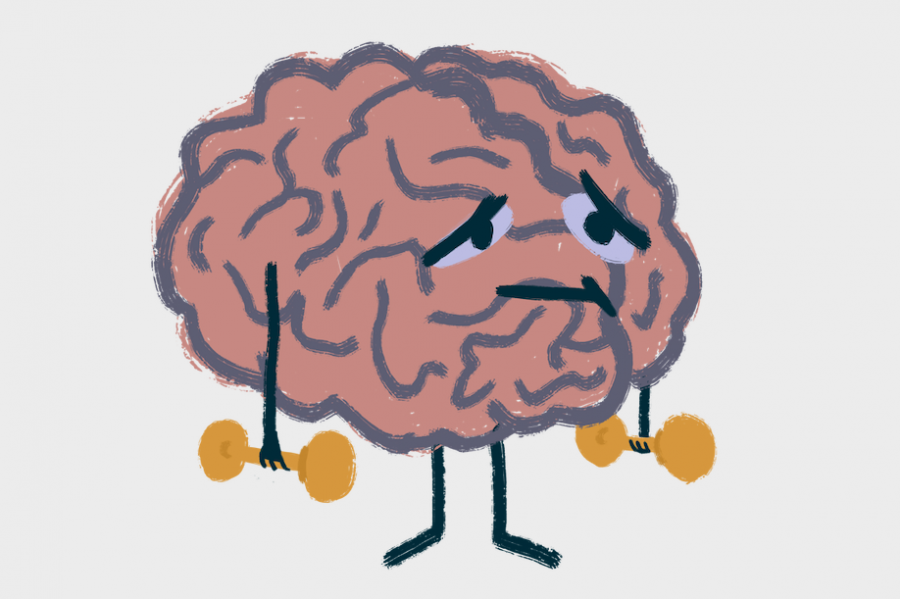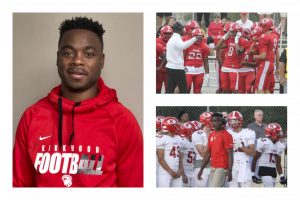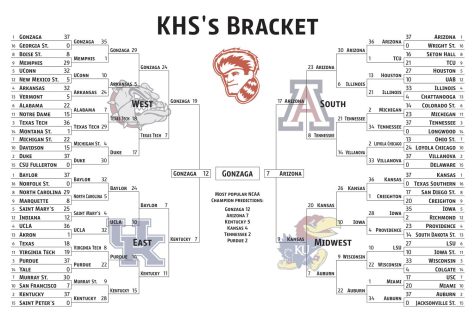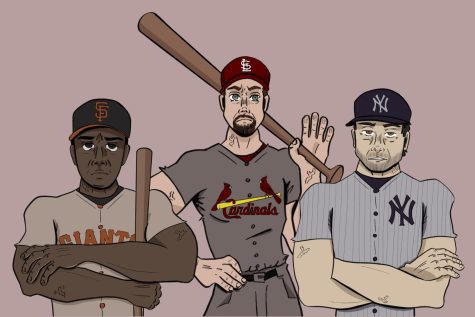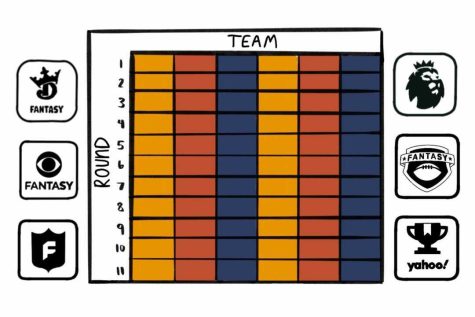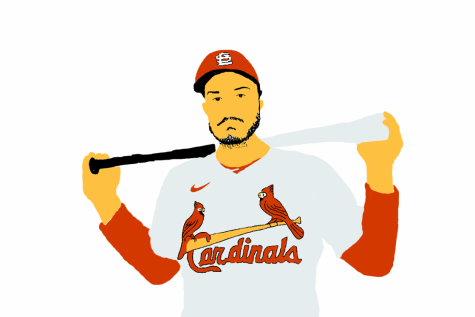The game beyond the game
With athletes training their physical strengths, often their mental health is overlooked.
*Opinion
After making the number one ranked USC volleyball team as a walk on, Victoria Garrick was overjoyed to finally be on the path to play for her dream college. Although finally living her dream, Garrick began to worry about every aspect of her play and cave under the pressures of being an athlete. Garrick became consumed in a deep battle of depression and anxiety without even knowing she was in one.
Day in and day out, athletes are expected to be at the top of their game, forced to forget everything going on in their lives, tune out the noise and just play. With the speed and cruciality of the game, there is no time to take a break and think. There is only time to focus on what is going on in front of them. For their whole lives, athletes have prided themselves on physically strengthening their bodies to outperform their competition, but what happens when they face a different opponent? The invisible game that is as important as the physical aspect of the game: athletes struggling with mental illness.
Athletes are forced to deal with a tremendous amount of stress in their daily lives. They step foot in the building trying to do the impossible: achieving perfection. From there, athletes have practices where they must always try their hardest because the person right next to them is working just as hard, if not harder, to take their spot. With one mistake they can have their spot, or even career, taken. They have critiques from not only themselves and their coaches, but also the media and the fans they play for. On top of everything they have to worry about their family at home, coming back from injuries and their future. Although the life of being a professional athlete is highly glorified, there is much more mentally than what meets the eye.
Athletes are not immune to the growing struggle of mental illness. According to a study done by the National Alliance on Mental Illness (NAMI), approximately one in five adults in the U.S. suffer from mental illness, including illnesses such as depression, anxiety, obsessive-compulsive disorder, addictions and substance misuse. With the sports industry being heavily focused on physicality, mental health is often pushed aside. Because of this culture, athletes go through each day without any acknowledgment of the struggles that go on inside of their heads.
Former Cardinals’ pitcher Rick Ankiel knows first hand the struggles of mental illness. In his book, The Phenomenon, Ankiel writes about his inability to perform, despite repeating the same mechanics, because of his severe anxiety. A condition he calls the “yips” made it impossible for him to hit the strike zone, ultimately ended his pitching career and sent him down a dark path of finding ways to cope. He explained how the effects of mental health in sports stretches beyond the game.
“It consumes you. It’s not just on the field. It never goes away,” Ankiel said in an interview with USA Today. “It’s this ongoing battle with your brain. You know what you want to do — in your heart. But your body and brain won’t let you do it”
Athletes struggling with mental health do not receive the same treatment as if they were physically injured. Often, athletes do not acknowledge their mental struggles and simply push them aside. The fact you cannot openly see what is going on inside of an athlete’s head makes mental illness more dangerous. With a physical injury, athletes seek out medical attention and have the ability to take time off if needed to heal. For mental injuries, however, this is not the case. More times than not, athletes are forced to deny the struggles they are going through and continue playing. The reality is, mental health needs to be taken just as seriously as a physical injury if athletes want to be able to excel in all levels of play.
The stigma of mental health extends into the sports industry. Oftentimes athletes do not feel comfortable coming out about their struggles with mental illness. In an occupation where each player’s livelihood is built on being strong, players do not want their speaking out to be viewed as a sign of weakness. An overall lack of understanding about the severity of mental health is one of the issues. With mental health being a key component to any game, it needs to become a topic more talked about and accepted in sports. Instead of mental illnesses being viewed as a weakness, it needs to be praised as a form of strength.
As the times have become more progressive, numerous athletes at the top of their game have begun to speak out and share their stories about their struggles with mental illness. In addition to Ankiel and Garrick, other athletes including Olympic swimmer Michael Phelps, NBA player Kevin Love, tennis champion Serena Williams and NFL player Dak Prescott have stepped out of the darkness that surrounds the stigma of mental health to show a greater awareness of the subject. Athletes have taken to social media speaking openly about their stories and using hashtags, including #BellLetsTalk and #BreakTheStigma to reinforce that there is no such thing as weakness when it comes to taking care of your mental health. Each preaches that everyone has their own struggles to deal with and it is okay to seek help.
“Everyone is going through something that we can’t see,” Kevin Love, 5-time NBA All-Star, said to The Players’ Tribune. “The thing is, because we can’t see it, we don’t know who’s going through what and we don’t know when and we don’t always know why. Mental health is an invisible thing, but it touches all of us at some point or another. It is a part of life.”
Ultimately more initiative needs to be taken throughout the sports world to raise awareness of mental health. This can begin with a greater emphasis on mental screenings and overall knowledge of mental health. In addition, leagues and players alike need to continue to work against the stigma that surrounds mental illness. Professional athletes possess the platform and ability to get closer to eliminating the stigma of mental illness.
Your donation will support the student journalists of Kirkwood High School. Your contribution will allow us to purchase equipment and cover our annual website hosting costs.

She/Her
Hobbies and Interests: volleyball, watching sports, traveling, listening to music and hanging out with friends
Favorite song: Callin Baton...

she/her
Favorite musical artist: The 1975
Favorite quote: “Don't bother just to be better than your contemporaries or predecessors. Try to be better...



